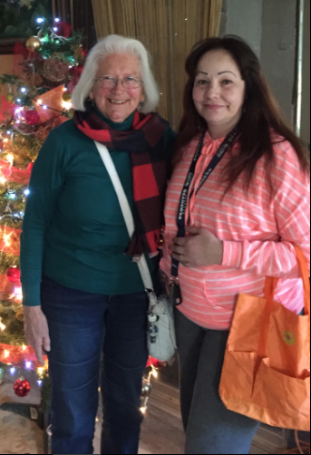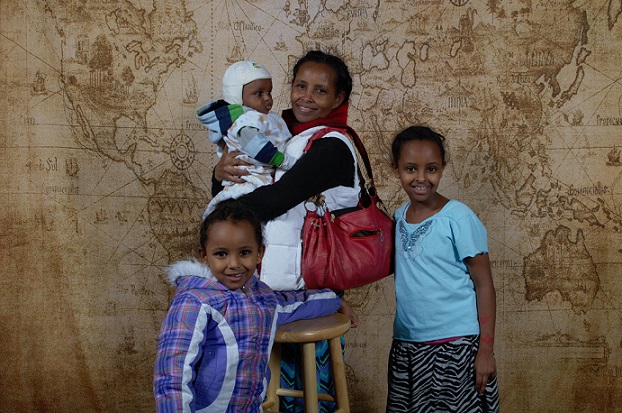The following is a Christmas-time spiritual reflection by World Relief Seattle’s Interim Director, Luke Williams.
The words of the well-known carol point to one of the primary questions of Christmas: Is there room in my heart for Christ? Particularly in the midst of the busy-ness, anxiety and consumerism of our modern world, so much can crowd out and clutter up the soul space Christ longs to fill.
When Jesus entered the temple and “drove out those who were buying and selling there, and overturned the tables of the money changers and the benches of those selling doves” (Mark 11:15-17), he quoted two Old Testament passages that have become important for us at World Relief Seattle. He contrasts the vision of “a house of prayer for all nations” found in Isaiah 56 with Jeremiah’s indictment of the “den of robbers” (chapter 7). Both passages speak strongly for inclusion of foreigners and against oppression of the most vulnerable.

Luke greets a travel-weary refugee family at SeaTac Airport.
Now, I realize that clearing the temple isn’t a typical “Christmas story”. I’m not suggesting that you replace the nativity scene on your mantle with a statuette of Jesus chasing merchants and livestock with whip in hand. Yet, surely this is one key dimension of the incarnation: Jesus came to clean house. Further, in this particular story, I would argue that one reason, among many, that the marketplace in the temple courts so angered Jesus was simply that it got in the way. The outer courts were meant to be the place where God-fearing men and women from all nations could gather to worship the Lord. A bustling market is hardly conducive to the nations gathering for prayer.
Consistent with the special provisions and protections in the Old Testament around treatment of foreigners and other vulnerable people, Jesus consistently taught and acted in ways that challenge us to broaden our welcome. In fact, there are at least to ways in which Jesus personally identified with immigrants. First, before the age of two, he and his family fled to Egypt to escape political violence. Second, in the well-known parable recorded in Matthew 25, Jesus made the startling claim that whatever we do (or do not do) to the “stranger”, we do to him.
This Christmas season, in the spirit of cleaning house, I’m wrestling with a slight variation on the above question: Is there room in my heart and life for Christ to come as a refugee, as a foreigner, as someone very different than myself? As with any question worth pondering, it is best acted upon as well as reflected upon. The spiritual lessons and blessings of cross-cultural friendship can only be known by actually becoming friends. Hospitality is learned by giving and receiving it.
This Christmas, 5 local churches are serving as Good Neighbor Teams, a handful households have opened their doors to be hosts. 45 local volunteers are currently paired with newcomers as Cultural Companions. I trust they will find what my family has found to be true—making room is small sacrifice for the abundance we receive.
From all of us at World Relief Seattle, we wish you a very merry and roomy Christmas!
Joy to the world! The Lord is come.
Let earth receive her King
Let every heart
Prepare Him room
And heaven and nature sing
And heaven and nature sing
And heaven and heaven and nature sing















